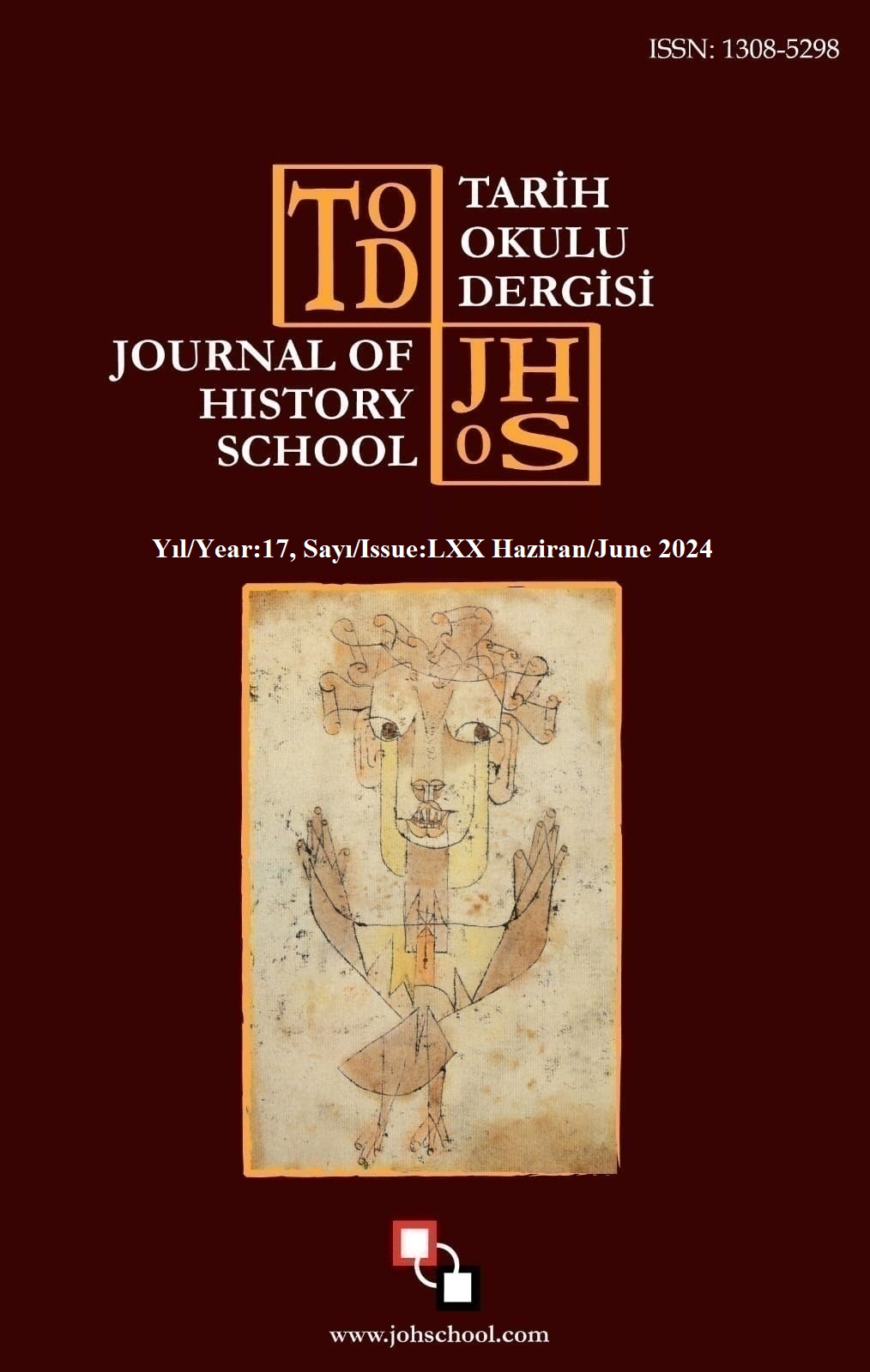COĞRAFİ CEHALET KAVRAMI VE 7. SINIF DÜZEYİNDE SOSYAL BİLGİLER DERSİNİN COĞRAFİ CEHALETİ GİDERME ROLÜ ÜZERİNE ÖĞRETMEN GÖRÜŞLERİ
Author :
Abstract
Coğrafi cehalet, bireylerin ve toplumların çevresel, kültürel ve jeopolitik gerçeklikleri anlayamamasına neden olan genel bilgi eksikliği durumu olarak tanımlanabilir. Coğrafi cehalet, eğitim sistemlerinin yetersizliği, kültürel ve toplumsal dinamikler, siyasi ve ekonomik faktörler gibi çeşitli unsurların birleşimiyle meydana gelir ve çok boyutlu bir nitelik taşımaktadır. Bu çalışma, 7. sınıf düzeyinde Sosyal Bilgiler dersinin coğrafi cehaleti giderme rolüne yönelik öğretmen görüşlerini incelemektedir. Çalışma, nitel bir yaklaşımla fenomenolojik desen çerçevesinde gerçekleştirilmiş olup, Elâzığ merkez ilçesinde devlet okullarında görev yapan Sosyal Bilgiler öğretmenlerinin görüşleri doğrultusunda yürütülmüştür. Elde edilen bulgular, sosyal bilgiler dersinin coğrafi cehaletin giderilmesinde önemli bir role sahip olduğunu ancak bu rolün tam anlamıyla yerine getirilmesi için ders içeriğinin zenginleştirilmesi, öğretmen eğitiminin güçlendirilmesi ve etkileşimli öğrenme fırsatlarının artırılması gerektiğini göstermektedir. Ayrıca, eğitim sistemine yönelik eleştiriler dikkate alınarak, öğrenci merkezli bir yaklaşımla dersin daha etkili hale getirilmesi, teknoloji kullanımının artırılması, öğrenci motivasyonunun teşvik edilmesi ve eğitim sisteminin coğrafi eğitime daha fazla kaynak ayırması gerektiği tespit edilmiştir. Çalışma sonucunda, coğrafya bilgisinin önemi vurgulanmakta ve eğitimcilere öneriler sunulmaktadır.
Keywords
Abstract
Geographical ignorance can be defined as a general lack of knowledge that prevents individuals and societies from understanding environmental, cultural, and geopolitical realities. It arises from a combination of various factors including deficiencies in educational systems, cultural and social dynamics, as well as political and economic elements, and it possesses a multidimensional characteristic. This study examines the role of the Social Studies course at the 7th grade level in addressing geographical ignorance based on the perspectives of teachers. The study, conducted with a qualitative approach within the framework of a phenomenological design, is based on the views of Social Studies teachers working in public schools in the central district of Elazığ. The findings indicate that the Social Studies course plays a significant role in addressing geographical ignorance, yet to fully fulfill this role, there is a need to enrich the course content, strengthen teacher training, and increase opportunities for interactive learning. Moreover, considering criticisms of the educational system, it is identified that making the course more effective with a student-centered approach, increasing the use of technology, enhancing student motivation, and allocating more resources to geographical education are necessary. The study highlights the importance of geographical knowledge and offers recommendations for educators.





